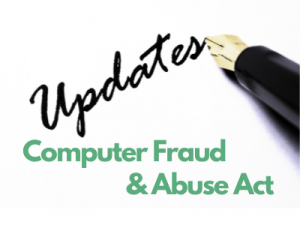Tor Ekeland P.C. filed a petition today with the U.S. Copyright Office on behalf of its pro-bono client, Software Freedom Conservancy, proposing an exemption to the anti-circumvention provision of the Digital Millennium Copyright Act (DMCA). The DMCA’s anti-circumvention provision prohibits workarounds to access controls applied to copyrighted works, including digital rights management (DRM) schemes and similar mechanisms. During a triennial review process, the Copyright Office considers proposals for exemptions to the circumvention prohibition. Conservancy’s proposed exemption would permit owners of computer-embedded “Smart TVs” to circumvent access controls, such as firmware encryption, that prevent them from accessing their TVs’ operating systems (usually composed of free and open source software). With legal access to the operating system, users can install new applications and greatly expand their TVs’ capabilities. Software Freedom Conservancy writes:
By default, the DMCA prohibits users from examining and attempting to decrypt firmwares on these devices when the manufacturer has used Digital Restrictions Management (“DRM”) to prohibit modification and augmentation of the software on the device. Most of these devices include software licensed under GPLv2, such as Linux and BusyBox, but the DMCA often legally stymies users’ ability to installed modified versions of the firmware, even when the device manufacturer provides the complete, corresponding source for these components and “scripts used to control compilation and installation of the executable” (per requirements in the GPLv2). If granted, Conservancy’s requested exemptions would liberate users of BusyBox/Linux-based encrypted firmwares to circumvent the encryption (if they find a technically feasible way of doing so), and such users would need not fear the harsh penalties under DMCA for disseminating information on how to circumvent such DRM.
Read the Conservancy’s full press release here: https://sfconservancy.org/news/2014/oct/31/dmca-petition/
Read more on the Copyright Office’s Rulemaking Proceeding here: http://copyright.gov/1201/
For general background on the DMCA, see the EFF’s writeup here: https://www.eff.org/issues/dmca




